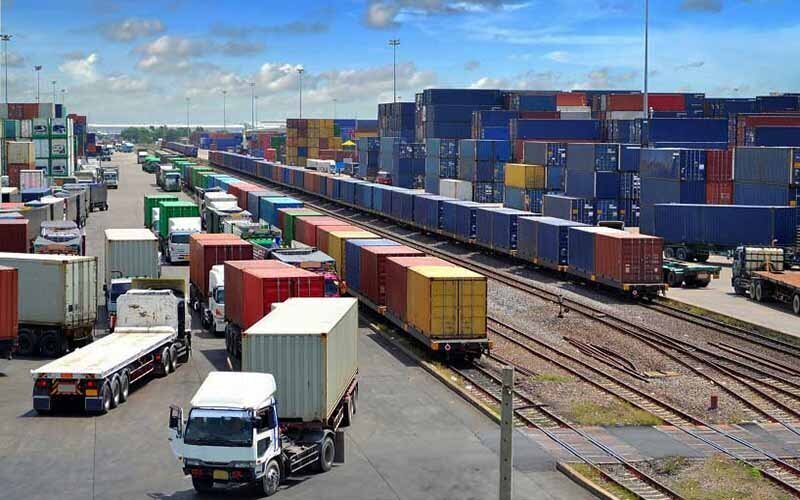
Iran’s exports fall 39% following coronavirus pandemic

According to Lahouti, the government had about $41 billion of non-oil exports on the agenda for the current Iranian calendar year (started on March 20), and so far the figures for the first five months of the current calendar year (March 20-August 21) indicate that the exports have fallen about 39 percent compared to the previous year.
Referring to the president's remarks on cutting economic dependence on oil, the official said: "The president has announced a reduction of 10 percent in the country's economic dependence on oil, which is unprecedented.”
Today, the country's economy is based on non-oil exports, which is of particular importance, he stressed.
“A country, which for years relied solely on the oil, is now facing conditions that have forced it to break its dependence on oil and to move toward a non-oil economy,” he added.
According to Lahouti, Iran is the only oil-rich country in the world where the budget dependence on oil revenues has fallen to about 10 percent.
This success is due to the fact that in recent years, on one hand, non-oil exports have been seriously promoted, and on the other hand, industrial, agricultural, and mining infrastructures have developed, and finally, investments in the petrochemical industry are now paying off, the official said.
“All these factors have led us to increase our non-oil exports from $7 billion a decade ago to over $40 billion last year”, he added.
In late June, Iran’s previous Acting Industry, Mining, and Trade Minister Hossein Modares Khiabani had said the ministry has it on the agenda to export $41 billion worth of non-oil commodities in the current Iranian calendar year (March 2020-March 2021).
Referring to the negative impact of the coronavirus outbreak on the country’s trade in the first two months of the current Iranian calendar year (March 20-May 20) the official noted: "There was a deep gap between exports in the first two months of this year which was reduced in the third month, and we are compensating for the backlog caused by the coronavirus."


Trump weighs using $2 billion in CHIPS Act funding for critical minerals

Codelco cuts 2025 copper forecast after El Teniente mine collapse

Electra converts debt, launches $30M raise to jumpstart stalled cobalt refinery

Barrick’s Reko Diq in line for $410M ADB backing

Abcourt readies Sleeping Giant mill to pour first gold since 2014

Nevada army depot to serve as base for first US strategic minerals stockpile

SQM boosts lithium supply plans as prices flick higher

Viridis unveils 200Mt initial reserve for Brazil rare earth project

Tailings could meet much of US critical mineral demand – study

Kyrgyzstan kicks off underground gold mining at Kumtor

Kyrgyzstan kicks off underground gold mining at Kumtor

KoBold Metals granted lithium exploration rights in Congo

Freeport Indonesia to wrap up Gresik plant repairs by early September

Energy Fuels soars on Vulcan Elements partnership

Northern Dynasty sticks to proposal in battle to lift Pebble mine veto

Giustra-backed mining firm teams up with informal miners in Colombia

Critical Metals signs agreement to supply rare earth to US government-funded facility

China extends rare earth controls to imported material

Galan Lithium proceeds with $13M financing for Argentina project

Kyrgyzstan kicks off underground gold mining at Kumtor

Freeport Indonesia to wrap up Gresik plant repairs by early September

Energy Fuels soars on Vulcan Elements partnership

Northern Dynasty sticks to proposal in battle to lift Pebble mine veto

Giustra-backed mining firm teams up with informal miners in Colombia

Critical Metals signs agreement to supply rare earth to US government-funded facility

China extends rare earth controls to imported material

Galan Lithium proceeds with $13M financing for Argentina project

Silver price touches $39 as market weighs rate cut outlook

















